The Big Book of Controversies – Chapter III

Bethesda’s “Horse Armor” and Nude Hack
2006
On April 3rd, 2006, Bethesda Game Studios released their first DLC packet for their recently released fourth entry into their Elder Scrolls franchise (Elder Scrolls: Oblivion). While DLC was nothing new to the ever-changing landscape of new console generation at the time, the idea of “Microtransaction” DLC was. Initially, Bethesda charged a relatively minor $2.50 for access to an item called “Horse Armor.” On the same day of the DLC, gaming news site Joystiq criticized Bethesda’s decision for charging players even a penny for such a simple in-game item.
Pete Hines, Bethesda vice president of marketing later responded to the controversy stating that, “Honestly there’s not a lot of info out there for us to go on. We tried to find a spot for it that fit with what other things were out there. A Theme costs 150 points. The Kameo thing was 200. We’re trying to find the right spot that fits. How much is something you can use in the game worth versus a gamer picture pack, or a theme, and so on.”
On November 14th, 2011, the Internet humor blog Cracked published a list of the “10 most insulting things video games charge money for,” listing Horse Armor at #10. On September 18th, 2012, Game Industry posted an interview with Mr. Hines during their Elder Scrolls Online discussion, who looked back at the incident as a valuable learning lesson. “You can look at something like [the] Horse Armor pack as an example. The reaction to Horse Armor wasn’t just about price. It was more of a lesson [of]: when you’re going to ask somebody to pay X, do they feel like they’re getting Y in exchange? If they don’t feel like they’re getting their money’s worth, they’re going to bitch.
“So it’s not about the amount of money; it’s about are you giving them really good value for what you’re making them pay for. That’s not an Elder Scrolls specific philosophy; I think that’s a philosophy for us across everything, whether it’s a game or DLC or an MMO or whatever. We have to make sure we’re providing enough quality for what you’re paying for, whatever you’re paying for, so that the customer feels satisfied that, ‘I got good value for my money.'”
On May 3, 2006, The Entertainment Software Rating Board changed the rating of Oblivion from Teen (T) to Mature (M) after an illegal PC mod, created by a woman calling herself “Maeyanie,” started making its way across the internet. The so-called “Topless Mod” was, according to her, created in protest against what she called “the government/society/whatever forcing companies to protect our innocent population from seeing those evil dirty things 50% of them possess personally anyways.”
However, the ESRB also cited the fact that Bethesda had failed to properly disclose the game’s depiction of blood and gore, citing the depiction of the “Dread Father” corpse during the game’s Dark Brotherhood (Assassin’s Guild) storyline:
“What Bethesda had originally disclosed to us, as an example: In that section of the game, there is a hanging corpse. What they disclosed to us was a hanging corpse in the dark, pretty far away and without much detail. And yet, when you bring a torch up to the hanging corpse in the actual game, you can see that it’s very mutilated with lots of blood and bones. That was a very different depiction, far more intense, far more extreme than what had been disclosed to us.”
While Bethesda would eventually comply with the ESRB’s decision and would not contest the ratings change, the publisher did release a press statement saying that, “Oblivion was not typical of Mature rated titles, and did not contain ‘central themes of violence’ common to such titles.” Bethesda asserted that their original submission to the ESRB was “full, accurate, and comprehensive,” and that nothing had been hidden, altered or withheld. The developer also stressed that there was no nudity in the game without this illegal and unwanted modification, and that the company “didn’t create a game with nudity…. Bethesda can not control tampering with Oblivion by third parties,” the press release concluded.
Currently, the ESRB’s re-rating of the game still lists the title, and its subsequent DLC packets, as Mature.
BioWare / Mass Effect – The “Se’xbox” News Scandal
2007
On November 16, 2007, developer BioWare released the first part of their galaxy spanning space opera trilogy, Mass Effect, for Microsoft’s Xbox 360. While the title was critically and commercially successful, it wasn’t without its controversies. On January 16, 2008 neoconservative blogger Kevin McCullough published an entry on his townhall.com page calling the game’s supposed “sex scenes” as disgusting “filth.”
“It’s called “Mass Effect” and it allows its players – universally male no doubt – to engage in the most realistic sex acts ever conceived. One can custom design the shape, form, bodies, race, hair style, breast size of the images they wish to “engage” and then watch in crystal clear, LCD, 54 inch screen, HD clarity as the video game “persons” hump in every form, format, multiple, gender-oriented possibility they can think of.
The objections to such filth should be simple to understand.
Starting with the disgusting idea that one can “create” their own versions of what people look like, removing warts, moles, and bald spots while enhancing – shall we say – the extended features of the game’s characters tends to objectify women, sex, and human relationships. Right? We can all agree on this?
McCullough, who had never even played the game, went on to falsely state that “Mass Effect can be customized to sodomize whatever, whomever, however, the game player wishes,” and added that “with its ‘over the net’ capabilities virtual orgasmic rape is just the push of a button away.”
On January 21, 2008, Fox News TV ran their ‘Live Desk With Martha MacCallum’ segment with the headline of “SE’XBOX?’ New video game shows full digital nudity and sex.” MacCallum went on to state that the game “leaves nothing to the imagination” and features “the ability for players to engage in full graphic sex.” Interviewed during the segment were psychology specialist and author Cooper Lawrence and video game journalist / executive producer of GameTrailersTV Geoff Keighley. Cooper went on to argue that “Here’s how they’re seeing women: They’re seeing them as these objects of desire, as these, you know, hot bodies. They don’t show women as being valued for anything other than their sexuality. And it’s a man in this game deciding how many women he wants to be with.” Cooper argued that the sexual content was teaching their active users, mostly adolescent boys, to consider women as objects of desire valued solely for their sexuality.
Keighley, meanwhile, challenged both on the accuracy of their statements, noting that it was also a choice to play the protagonist as either a male or a female and described the optional, brief “romance scene” as the culmination of a romantic relationship in a 30-plus hour game. Keighley also argued that the accusations of graphic, full-frontal nudity within the game was exceptionally and exceedingly false. MacCallum and Lawrence later admitted that neither had ever played the game, or even viewed any of the alleged content in question.
On January 25, Lawrence eventually retracted her earlier statements in various interviews after finally viewing the scene. She added that she had been told the game was similar to pornography, and noted that she “has seen episodes of Lost that are more sexually explicit.” Beforehand, largely due to an extremely offended gaming community, her latest book attracted hundreds of angry “customer” reviews on Amazon.com which rated it one star out of five. Former G4TV personality and Rev3Games editor-in-chief Adam Sessler later called the entire incident a “litany of falsehoods” blown exceptionally out of proportion.
However this wouldn’t be the last time Fox News would attack a game due to its supposed adult content. Nor would this be the last time a BioWare game would ignite the gaming community into action, as we’ll find out much later.
The Curse of GTA – (Grand Theft Anything)
1997 – 2015 (GTA V for Microsoft Windows)
Born from the minds of BGM founders David Jones and Mike Daily, and later by Sam and Dan Houser, Leslie Benzies, and Aaron Garbut, Rockstar and Take Two’s (later owners of the franchise) GTA series follows the disparate tales of lowly criminal or wannabe criminal agents spread across fictionalized cities based on real world settings. New York City, Miami and various parts of California for example, were represented by Liberty City, Vice City, and San Andreas respectively. These stories follow the main character as he slowly rises through the criminal underworld by completing various missions for an eclectic group of criminal kingpins and notable icons within, accruing their own notoriety, respect, and lavish riches until by then end they become the undisputed ruler of the criminal underworld.
It wasn’t until 2001 that the series, which had been top down 2D action adventure games beforehand, finally became a breakthrough hit for both Rockstar and Take Two. Designed as a third-person, open-world adventure, Grand Theft Auto III released to critical acclaim and commercial success for the Xbox and PS2 consoles, with later releases for the PS3 (via PSN), Microsoft Windows, OS X, iOS, Android, Fire TV, and Kindle. Since then the series has continued to expand and influence an entire culture of gamers. In fact, the series has become so popular that by the time Grand Theft Auto V originally released on September 17, 2013, the title had generated more than $800 million in worldwide revenue within a 24-hour period.
However, the franchise has had its fair share of controversies since its original inception nearly 18 years ago. The very first GTA, for example, was condemned in Britain, Germany, and France due to its “extreme violence”, while the Brazilian Government banned it outright from store shelves. With Grand Theft Auto III, opponents of the game cited that its 3D graphics made the violence and sexual content more realistic and graphic, and criticism was placed on the game’s focus on doing illegal and often horrendous crimes, with minimal or even no lasting consequence for their actions.
On 20 October 2003, the families of Aaron Hamel, a 45-year-old registered nurse, and Kimberly Bede, at the time 19-years-old, attempted to file a $246 million lawsuit against publishers Rockstar and Take-Two, as well as retailer Wal-Mart, and PlayStation 2 manufacturer Sony Computer Entertainment America after Hamel was killed and Bede seriously injured by stepbrothers William and Joshua Buckner (16 and 14 at the time) when their cars were hit June 25 by .22-caliber bullets as they passed through the Great Smoky Mountains. The two were sentenced in August of that year to an indefinite term in state custody after pleading guilty in juvenile court to reckless homicide, endangerment and assault. The boys told investigators they got the rifles from a locked room in their home and decided to randomly shoot at tractor-trailer rigs, “just like in the video game Grand Theft Auto III.”
The families had hired the anti-gaming crusader Jack Thompson to preside over the case. “These kids simply decided to take the thrill of that game out to Interstate 40 and started pointing at cars,” Thompson said in a later interview to the public. Thompson, who said he sent letters to Sony and Wal-Mart to drop the game before the shootings, said “It’s not like this is coming out of the blue, they chose to ignore this danger.”
Rockstar and Take-Two filed for dismissal of the lawsuit, stating in U.S. District Court on 29 October 2003 that the “ideas and concepts as well as the ‘purported psychological effects’ on the Buckners are protected by the First Amendment’s free-speech clause.” On October 22, 2003, the case was removed to the U.S. District Court for the Eastern District of Tennessee. Two days later, the plaintiffs filed a Notice of Voluntary Dismissal, and the case was closed.
Grand Theft Auto: Vice City, first released on October 27, 2002, came under fire after Cuban-American and Haitian-American civil rights organizations in Florida publicly criticized the title, due to the depictions of ethnically-targeted violence and dialogue during the game’s story. New York City’s then-Mayor Michael Bloomberg, after viewing the content, vowed to “do everything [he possibly can]” to rectify the situation if Rockstar did not comply. Take-Two later agreed to remove several lines of dialogue in all of its subsequent re-releases of the game.
In February 2005, lawyer Jack Thompson attempted to once again sue Rockstar and Take-Two after Devin Moore, 17 years old at the time, grabbed a pistol from one of the Fayette, Alabama police officers and shot and killed him along with another officer and dispatcher before fleeing in a police car after being apprehended in connection with vehicular theft. Thompson had claimed that it was Vice City’s graphic and violent nature that caused Moore to commit the murders, and Moore’s family agreed. The lawsuit would later include the Jasper branches of GameStop and Wal-Mart, the stores from which GTA III and Grand Theft Auto: Vice City, respectively, were purchased.
However, his participation in the case ran into a dispute over his pro hac vice (a legal term usually referring to a lawyer who has not been admitted to practice in a certain jurisdiction but has been allowed to participate in a particular case in that jurisdiction) The opposing attorneys sought removal of this privilege by arguing that his conduct was unethical and claiming he had threatened and harassed them in letters and emails. The judge also added that Thompson had violated his gag order during Moore’s criminal trial.
Although Thompson tried to withdraw from the case, his request was denied, and the courts revoked Thompson’s temporary admission to the state bar. In the aftermath of the lawsuit, Thompson lobbied Alabama’s then-Attorney General Troy King to try and have him file a civil suit against Rockstar and Take-Two, pleading for retailers not to sell “cop-killing games” after the slaying of another police officer in Gassville, Arkansas by Jacob D. Robida, an 18-year-old fugitive. Thompson attempted to raise the possibility of a connection to Grand Theft Auto, but investigators found no evidence that any of the GTA games were involved in the shooting.
Grand Theft Auto: San Andreas, first released on October 26, 2004, came under media-fire after a mid-June 2005, software patch for the game, dubbed the “Hot Coffee Mod”, was released by Patrick Wildenborg, a 38-year old PC modder from the Netherlands. After users install the patch, players can experience a previously deleted sexual intercourse mini-game. While the mini-game was initially disabled, the code and all its assets still resided on the PC game disc itself, and was discovered to exist even on the PS2 and Xbox versions of the game. On 20 July 2005, the ESRB ruled that the game’s rating would immediately change from Mature (M) to Adults Only (AO), making San Andreas the only mass-released AO console game in the United States. Rockstar announced that it would cease production of the version of the game that included the controversial content.
Grand Theft Auto IV, released in 2008, drew the ire of MADD (Mothers Against Drunk Driving) after the organization pointed out that the in-game option to allow players to drive while intoxicated was appallingly in poor tastes, and actively sought to have the title banned in the United States. “Drunk driving is not a game and it is not a joke,” the organization said in a subsequent press release. “Drunk driving is a choice, a violent crime, and it is also 100 percent preventable.” MADD also attempted to have the ESRB regrade GTA IV from Mature (M) to Adult Only (AO) and called on Take-Two and Rockstar Games to stop making the game out of both a sense of social responsibility, and to respect those who’ve been hurt or killed by drunk drivers. The ESRB denied the regrade, stating that Rockstar and Take-Two included “Use of drugs and Alcohol” during its initial ratings certification.
On June 27, 2008, police arrested six teenagers in the town of New Hyde Park, New York after the group mugged a man, knocked his teeth out, attempted to car-jack a woman driving a BMW and smashed a passing van’s window out with a bat. These actions, according Nassau County Police, were inspired by the violent crimes in Grand Theft Auto IV, and the teens were simply emulating the game itself.
On August 4, 2008, BBC News reported that an 18 year-old student had been arrested in Bangkok, Thailand after killing the driver of a taxi while attempting to steal it. Bangkok police claimed that the suspect, Veerarit Pipatanasak, “…wanted to find out if it was as easy in real life to rob a taxi as it was in the [GTA IV] game.”
As a result of the incident, the game (along with the rest of the series) was subsequently banned in Thailand.
On August 24, 2013, local Louisiana news reported that a 90-year-old grandmother was killed when an eight-year-old child under her care grabbed a handgun and shot her in the head after playing Grand Theft Auto IV in Slaughter, Louisiana.
Grand Theft Auto V, first released on September 13, 2013, generated controversy from reviewers and commentators for its depiction of torture during the game’s “By the Book” mission where players use torture techniques, including the highly-controversial “water-boarding” technique to interrogate someone. IGN’s own Keza MacDonald stated that “I found [it] so troubling that I had difficulty playing it; even couched in obvious criticism of the US government’s recourse to torture post 9/11, it’s a shocking moment that will attract justified controversy. It brings to mind Call of Duty: Modern Warfare 2’s No Russian mission, except worse, and without the option to skip over it. Some other stuff, like the ever-present prostitution and extensive strip-club mini-games, feels like it’s there just because it can be rather than because it has anything to say.”
On September 16, 2013, Gamespot’s own Carolyn Petit came under fire after her review of the game’s portrayal of women was described as “highly misogynistic” in design. She stated that the game’s treatment of women as “strippers, prostitutes, long-suffering wives, humorless girlfriends and goofy, new-age feminists” was highly offensive and felt that the satirical representation of misogyny somehow legitimized all of it. Her review (9 out of 10) was then met with overwhelmingly negative commentary after various Gamespot users bombarded her review page with over 20,000 comments. There was even a push for an online petition at Change.org demanding that she be fired from her position.
On October 11, 2013, hip-hop artist Daz Dillinger issued a cease-and-desist letter to Rockstar and Take-Two alleging that the developer used two of his songs without permission. The artist gave the company 14 days to compensate the star or “destroy all copies of the game.” Rockstar later removed the songs in an update patch.
On February 27, 2014 Karen Gravano of the reality TV program “Mob Wives” filed suit against Rockstar alleging defamation of character after a personality in the game was based both on her likeness and story and was depicted without her consent. Rockstar later filed to dismiss Gravano’s lawsuit in April, stating that the character was a parody, and protected under the First Amendment.
On July 3, 2014, actress Lindsay Lohan filed a lawsuit against Rockstar after claiming elements in the game were influenced by her image, voice and clothing line without permission. Rockstar later responded in court papers saying that the case was frivolous and filed for publicity purposes. Rockstar also claimed parody protection under the First Amendment.
As of October 2014, these two lawsuits are still ongoing.
Pages: 1 2

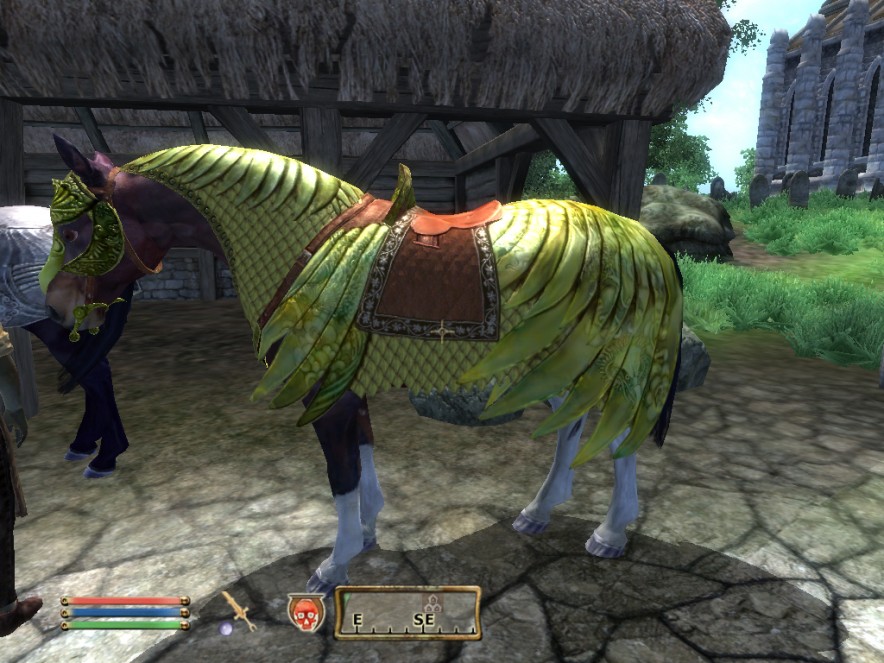
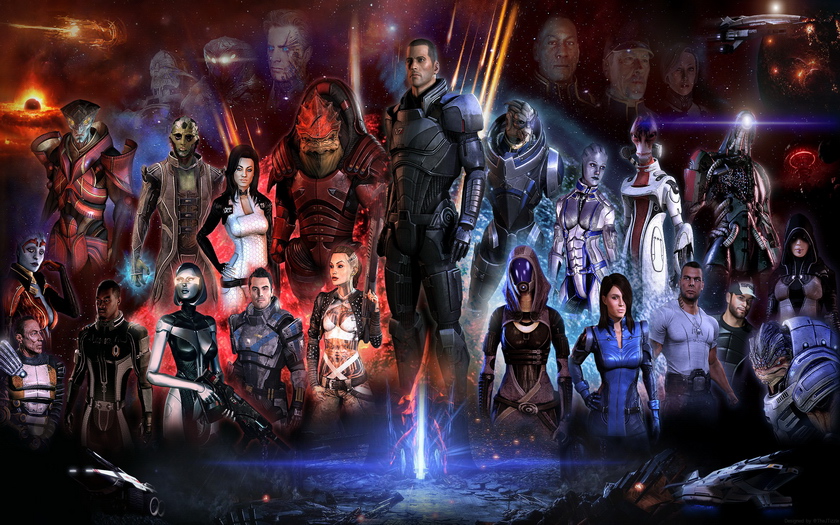
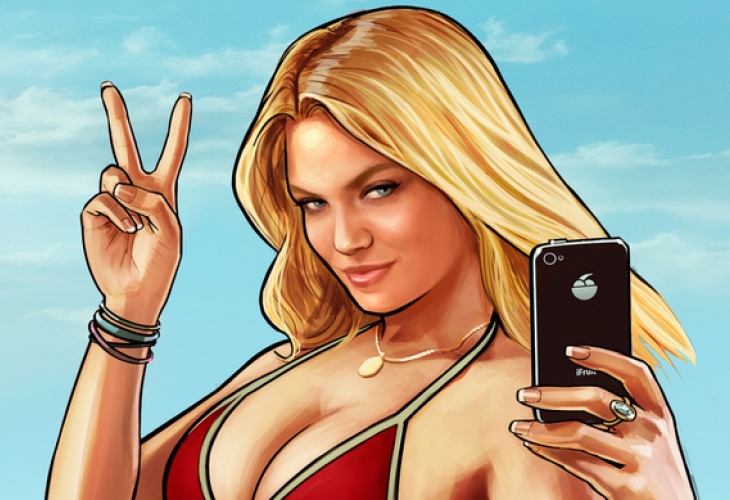
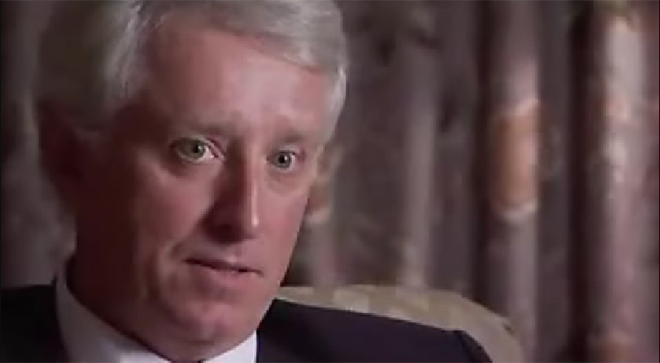
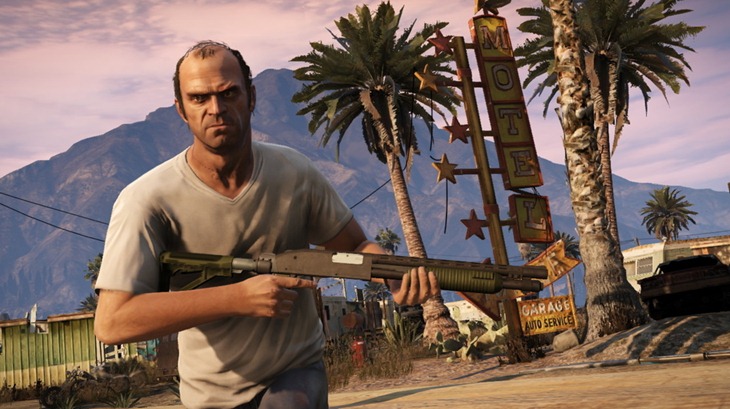







I was never aware of the whole horse armor hysteria when it occurred so maybe that is why I feel this way but I honestly can’t get too upset with Bethesda because if it wasn’t them, surely someone else would have decided to do so *cough* EA *cough* At least in was only cosmetic, but it does suck that there was no way to earn it legitimately in-game.
What I am more shocked that I was unaware of was the PS3 debacle. I don’t know what year this was, but I owned a PS# for a very brief amount of time and just wasn’t that thrilled with it so I sold it to a good friend of mine. Months later, I get a call from my previous bank (I had closed my account for reasons not related to the incident I am about to describe) saying my account had been overdrawn and interest had been piling up on the overdrawn account for weeks.
I. Was. Heated.
The account was CLOSED. and yet, somehow, Sony was able to charge $100 to the defunct account which my Playstation account was linked to. I called Sony to figure out what was going on and my first question, before I even asked WTF!, was “what even costs $100 on the Playstation Store?” They couldn’t answer because nothing did cost that much. This was even before full $60 games were available for digital download.
Needless to say, I was furious after the whole situation, and whether or not this was linked to the event described in this article or even Sony’s fault at all, it left me bitter with the company for many years. I have only recently been able to forgive and forget this situation. Until I read your article of course 🙂